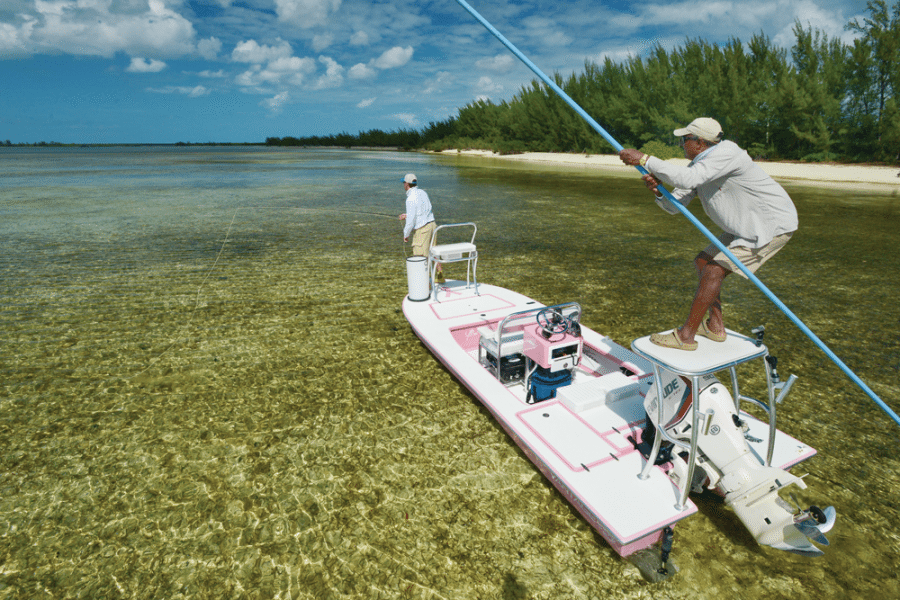While working in the Bahamas on my “Ghost Stories” research, I have been securing the history of the bonefishing industry, along with vital ecological knowledge Bahamian guides have accumulated. All of this vital information will help preserve Bahamian fisheries well into the future and give them a place in Bahamian maritime history. During my studies, I have frequently pondered the subject of what makes a good guide, given the fact that I am fortunate to be interviewing some of the world’s best bonefish guides.
The answer to this is complicated. Some would argue longevity is important, and to some degree, I agree. Time on the water observing fish habits over decades is critical to being able to find fish in an ever-changing environment. However, being a good guide is more than just being able to find fish. A good guide needs to be an educator, an entertainer, a listener, a problem-solver, and an excellent communicator. Good guides need to be flexible, adaptable, resilient, patient, interested, kind, passionate, devoted and welcoming. During my work in the Bahamas, I have met many guides that exhibit all of these traits, but one stood out to me as a true legend!
When conducting research on Grand Bahama I had the honor of interviewing legendary guide David Pinder Sr. Mr. Pinder began guiding in 1958 when Deep Water Cay was just breaking ground and opening their doors. Like many early Bahamian guides, Mr. Pinder was simply in the right place at the right time but he was also, an excellent angler and most importantly, a fine gentleman. His friendly smile and infectious personality no doubt made him a favorite among clients and his success has percolated through most of his sons and other relatives. Being “taught” by the best has allowed a second, and the third generation of “legends” to evolve, guides like David Pinder Jr, Jeffery Pinder, Joseph Pinder, cousins Stanley and Leroy Glinton and grandnephew Omeko Glinton. Bonefish guiding in the Bahamas has truly become a family affair.
Even with the best guides, success on the flats is a team effort. Anglers seeking guides need to have trust in their guide. I remember the first bonefish I ever caught, I never even saw the fish. I completely trusted the guide on cast location, distance, retrieval action and when to strike. Anglers also need to remember a guide’s boat is their office. I always go over expectations with a guide, ideally the night before, so that my equipment is set-up correctly, I know what is expected of me and the guide knows of any particular needs or wants; doing so reduces any potential tensions that could develop during a day on the water. After polling for hours in hot often-windy conditions, the last thing a guide wants is for their angler to miss a fish because of equipment issues, or communication troubles. Always try a few casts first thing in the morning so your guide can judge your distance. Ask the guide how far you cast so when the guide says, “Bonefish… big bonefish at 10 o’clock, 60 yards”, you know what he is thinking. Your 60 yards or 25 yards may be very different than the guide’s yardage! Most importantly, remember to have fun, enjoy every minute on the flats and don’t be hard on yourself (or your guide) if you miss that fish of a lifetime; in all likelihood, if you fish the Bahamas enough, an even larger one will come along!!
